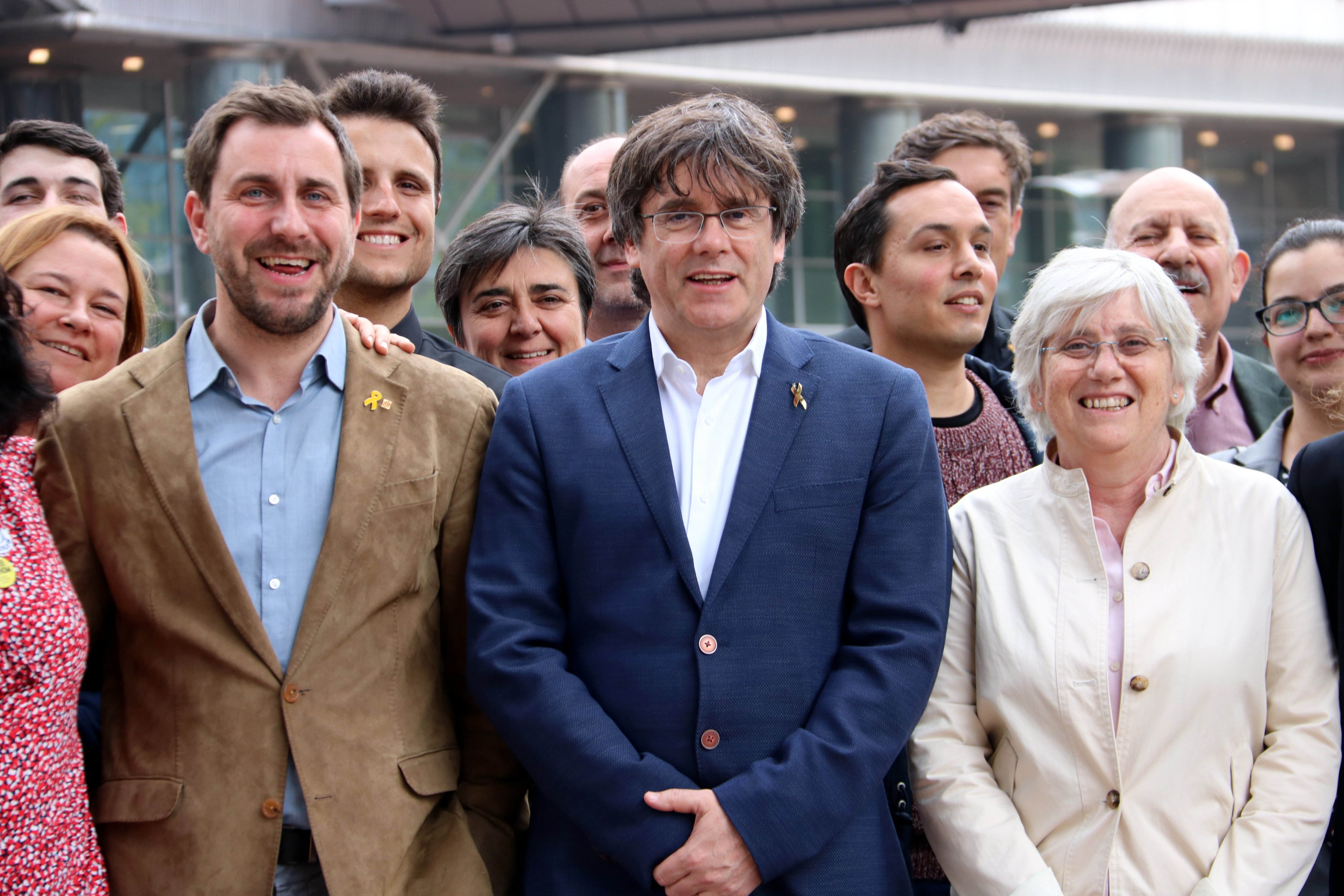Spain this Sunday is to see a surfeit of elections: to the European Parliament, to the parliaments of some autonomous communities and to all town councils. With hours to go until the legal deadline to publish surveys, here are the key results from the latest poll of the situation in Barcelona by Feedback for El Nacional.
The results are based on a telephone survey with 800 respondents, carried out between Wednesday and Friday last week and up to 2pm today, the final day such results can be published. The most notable result is that the pro-independence Catalan parties are, for the first time, close to getting a majority of votes in an election in Barcelona.
The candidacies Lliures per Europa, headed by president in exile Carles Puigdemont, and Ara Repúbliques, headed by imprisoned vice-president Oriol Junqueras, would by these results get 49.16% of the vote in the Catalan capital. This is, however, slightly down on our last survey from 15th May which gave them 50.40%. In the Spanish general election on 28th April this year they got 37.22% of the vote with ERC the largest party. In the 2017 Catalan general election, pro-independence parties got 45.76% of the vote in Barcelona.
Pro-union parties would get 40.31% whilst Unidas Podemos-En Comú Podem, who defend Catalonia's right to self-determination but don't support independence, and other parties would get 9.95%.
Puigdemont winning
Breaking it down by parties, Puigdemont's Lliures per Europa will come first in Barcelona, according to our survey, although their lead has shrunk since 15th May. They beat out Junqueras' Ara Repúbliques and PSOE, whose candidacy is headed by outgoing foreign minister Josep Borrell, who are effectively tied.
Lliures per Europa would now get 25.55%, ahead of Ara Repúbliques' 23.61%. Very close behind are PSOE on 23.11%, a notable increase on last week's 15.43%; Ciudadanos, on the other hand, collapse from 16.34% in our last poll to 11.37% this time. Of the main parties, Vox comes a clear last on 1.50%.
Barcelona tends to be a good barometer of the overall result in Catalonia for European Parliament elections, but seats are decided at the Spanish level in such votes. In the last election in 2014, ERC won in both Barcelona (21.77%) and Catalonia (23.69%), with CiU, forerunner of JxCat, coming second with 20.86% in the city and 21.84% in the whole of Catalonia. Third and fourth place, however, flipped between the capital and Catalonia as a whole. In Barcelona, it was ICV (12.62%) then PSOE (12.22%), and in Catalonia, PSOE (14.29%) then ICV (10.31%).
The next mayor of Barcelona
In the election to Barcelona city council, ERC, with Ernest Maragall as candidate for mayor, is on track to beat current mayor Ada Colau's BComú, with 22.56% of the vote for 10-11 seats (double its 2015 results) ahead of 18.89% of the vote for 9-10 seats.
Today's results show the same difference in voters' plans for their Barcelona and European ballot papers as last week's: JxCat not doing as well as Lliures per Europa, overtaken by ERC. Indeed, ERC is 1.5 points up on its results in last week's survey with an increased margin over BComú.
Possible government pacts
Despite this, Maragall would with these results have a hard time getting the votes to become mayor. A pact between ERC and BComú would get 19-21 councillors, hence only reaching an absolute majority if both of them have final results at the top end of the range predicted. The pro-independence parties (ERC, JxCat and CUP) would get 15-19, two short of the majority in the best case. The unionists (PSC, Cs and PP), for their part, fall even further short on 13-17.
One possible fact to bear in mind is the high level of respondents who claim to be undecided voters: 18.8%. Turnout is predicted to be 68.2%, up 7.64 points on the previous election four years ago.

